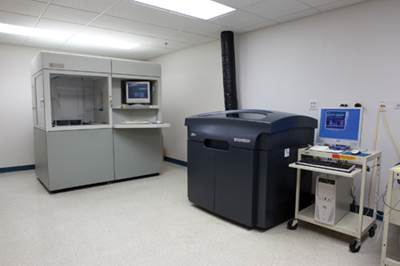Appreciate. Learn. Educate. Lead.
Taking the initiative to write about new manufacturing technologies is one thing. Presenting those concepts in a way people can readily understand and helping them see their potential value is another. Some writers are better at all this than others.
Share




Effectively and thoughtfully writing about applied machining technology for Modern Machine Shop is tricky. I came to appreciate this when I joined the magazine 15 years ago with a bachelor’s degree in mechanical engineering technology and seven years of public relations experience with manufacturing clients under my belt. Given those credentials, I still found the writing to be a bit tricky.
What do I mean by tricky? First, we write about a range of topics. Being a “horizontal” (not niche) magazine, we must stay on top of a variety of advancing machining technologies and trends. To that point, I will boldly speak for other writers here and say while we are continually learning about new machining processes and concepts; no one here is a machining expert. Second, there is an art to carefully crafting a story that describes how a shop applies and benefits from new machining technology. What we do is technical writing, but we are not “technical writers.”
So what traits are needed to be an effective, successful and impactful writer to best serve our industry? Here are three:
1) You must appreciate the technology. Hopefully you will find many aspects of it “cool,” too.
2) You must want to learn more about the technology and how it can help improve machining businesses. This curiosity will spur you to dig deeper.
3) You must explain the technology in a way that is easy for people to understand and see its potential value in their shops. This will require writing chops and care when crafting the story.
Editorial Director Mark Albert is a prime example of such a metalworking wordsmith. Mark has been telling shops’ tales for nearly four decades, writing stories about topics too numerous to list here. In particular, I appreciate how he has led the charge presenting burgeoning concepts and highlighting their potential impact on our industry, in a sense making them his writer’s “beat.” During my tenure here, two examples of this that Mark has thoroughly explored are lean manufacturing and data-driven manufacturing in job-shop settings.
Applying lean manufacturing in a job shop is different than in a production facility that makes the same parts or products every day. Mark has presented insightful articles on lean-related topics including 5S workplace organization, establishing machining cells, setup reduction and value-stream mapping in a job-shop environment. In fact, he will tell you your shop is not truly lean unless you can show him your present- and future-state value-stream maps.
In terms of data-driven manufacturing, Mark introduced readers to MTConnect, the open-source, royalty-free communication protocol for manufacturing that essentially lets machines and other equipment talk to each other. He explained what MTConnect devices such as agents and adaptors are. He also presented various stories about shops using MTConnect for effective machine monitoring, enabling them to make better, more informed decisions on the shop floor. Mark is a leading voice for this technology and its promise in our industry.
Though Mark has contributed his final “Mark: My Word” column this month, he will continue to write stories such as those mentioned above for our magazine. For that, I am thankful. I am also thankful to still chat with him about machining technology and various other things, albeit less frequently. I always enjoy our discussions about machining technology, but I value the “talking about other things” even more.
Read Next
10 Takeaways on How Artificial Intelligence (AI) Will Influence CNC Machining
The Consortium for Self-Aware Machining and Metrology held a promising first meeting at the University of North Carolina Charlotte. Here are my impressions.
Read MoreCNC Machining As A Prototyping Technology
Designcraft has many more machining centers than additive devices. Here is why.
Read MoreCNC Machining and Music Making
A common theme is that CNC machining complements the craftsmanship that is the essence of fine musical instruments.
Read More



























